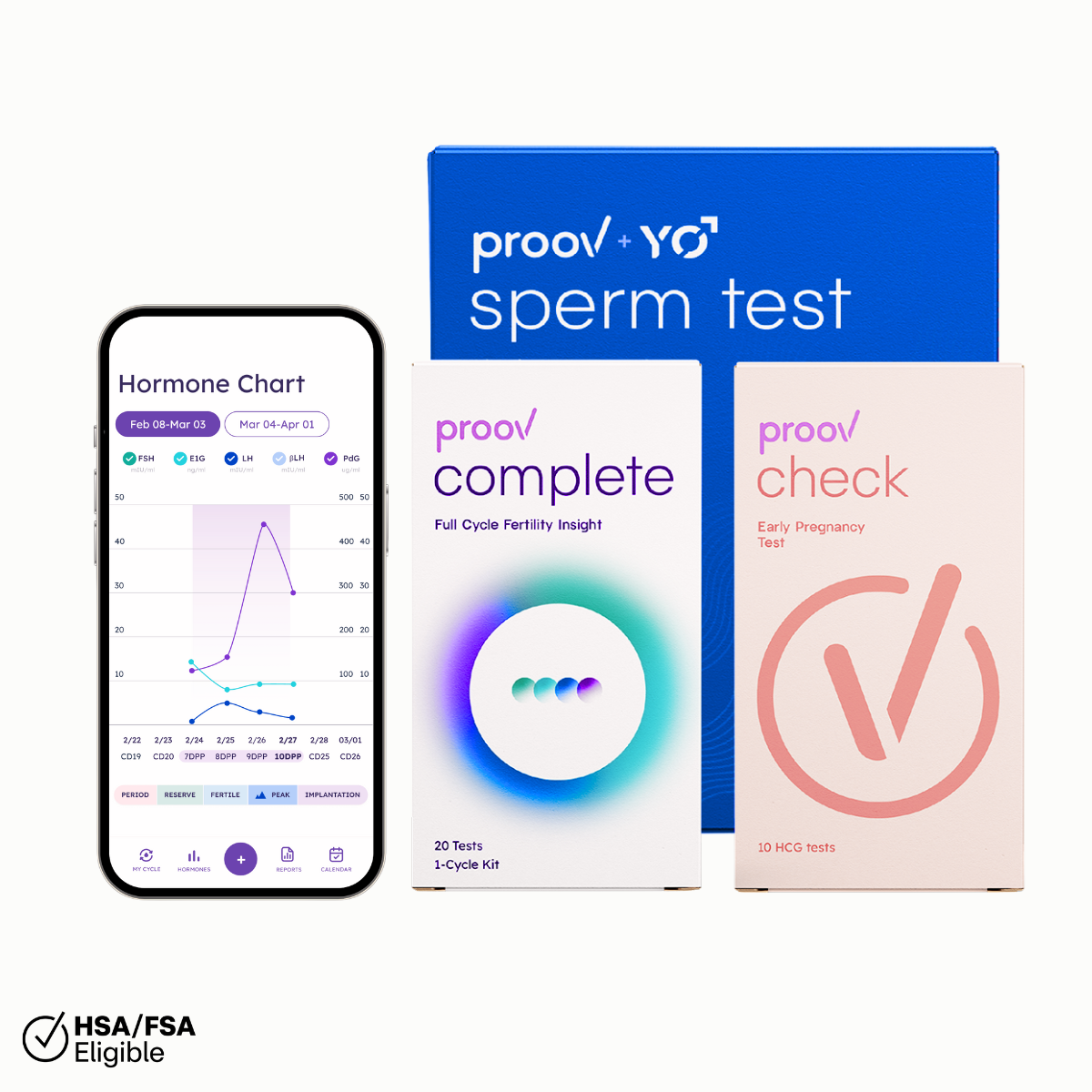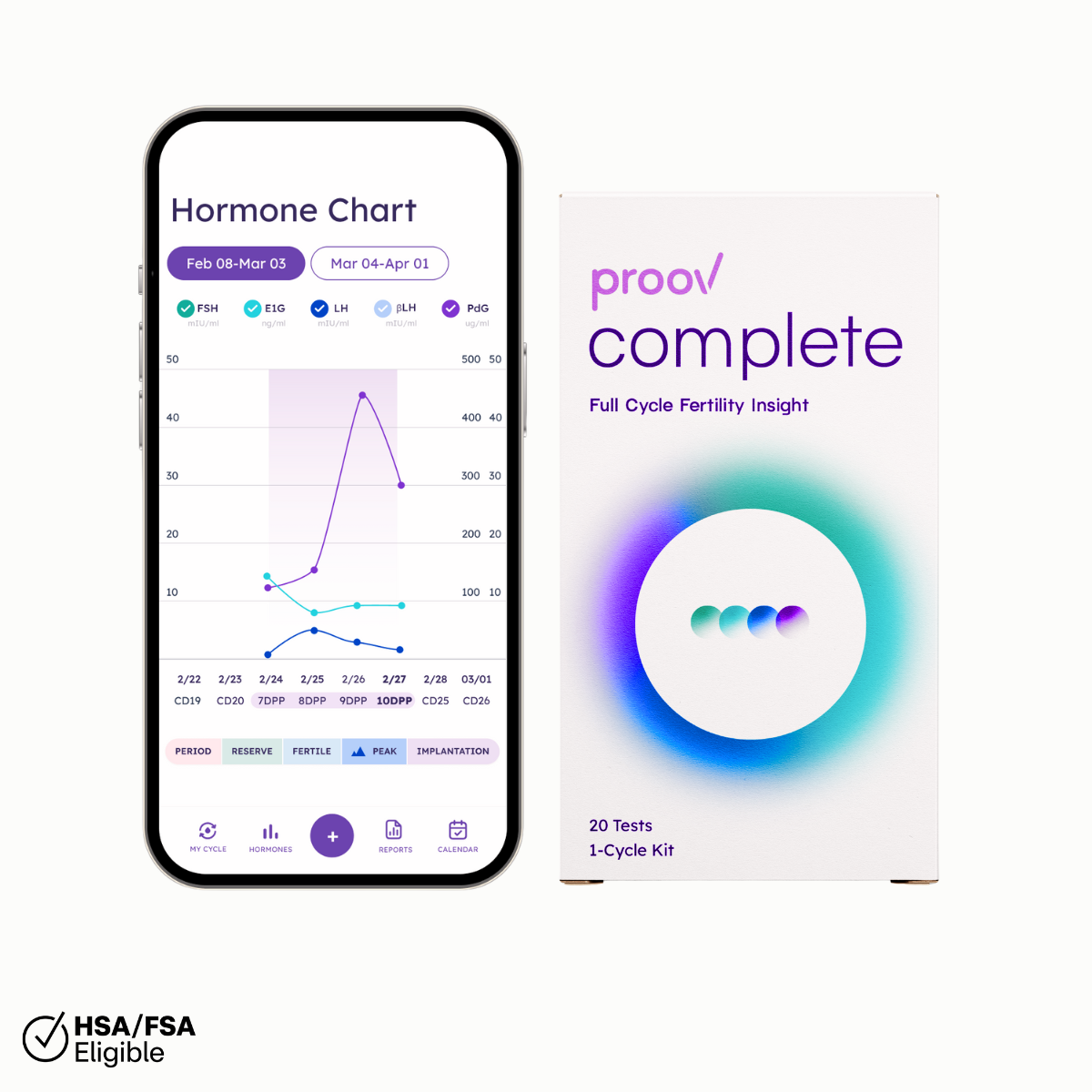If you’re trying to conceive, you probably know that sperm and egg are both necessary to make that baby. Since there’s only one egg per cycle and there can be millions of sperm, it’s easy to focus on the egg. Male and female factors are both equally likely to contribute to infertility though!
At-home male fertility testing is a great way to check on motile sperm concentration, a measure of the most important aspects of sperm health – sperm count and sperm motility. Check out this article to learn all about testing male fertility easily and quickly, all at home!
When it comes to fertility, it’s all about teamwork. Both male and female fertility problems contribute approximately equally to infertility, so it’s appropriate to lend equal effort to both even though the male side of things is often downplayed because, well, the females carry the babies!
If you’re trying to get pregnant though, it’s important to test male fertility too and focus on ways to improve sperm quality. To learn more about how to understand and test male fertility, read on!
An Overview on Male Fertility
Male fertility generally comes down to two things: sperm quality and sperm count. The bottom line is that a properly formed, healthy sperm needs to make it to the egg in order to fertilize it. While it does only take one sperm to conceive, high sperm count is important because it greatly increases the chances that one sperm will make it!
Sperm have to travel pretty far (between 12-18 centimeters, and sperm are only about 1/6000 cm long!) to make it to the egg, and most sperm won’t survive the journey. So by having a normal sperm count, about 15 million to 200 million per milliliter, you greatly increase your chances of actually conceiving.

Sperm quality is important, too. Cervical mucus in the female reproductive tract will actually filter out malformed sperm, so they won’t make it to the egg. Surprisingly, having only 4% of normally shaped sperm is considered perfectly normal (which is another reason sperm count matters)! While the relationship between sperm morphology and fertility is still poorly understood, the bottom line is that sperm that can’t swim properly won’t make it to the egg.
Male vs Female Fertility
The major difference between male and female fertility is that with male fertility, it really all comes down to sperm! With female fertility, regular ovulation is important, but it also needs to be successful ovulation to support implantation, and then the pregnancy has to be maintained. Timing intercourse also becomes important because females are only fertile about 6 days each cycle.
With male fertility, though, sperm production is pretty constant, and quantity also matters more. Instead of one egg released every cycle, it’s about maximizing production of sperm to increase the chances one will make it.
There are some similarities, too. Structural issues can be a challenge for both, like blocked fallopian tubes in females or ejaculatory duct obstructions in males. And in both cases, lifestyle factors like nutrition, alcohol and drug use, and exposure to endocrine disrupting chemicals can make a difference.
What is a male fertility test?
The good news is that since male fertility mostly comes down to sperm, it’s easy to test compared to female fertility (although we hope we make that easy too, here at Proov). For typical male fertility testing at a clinic, a semen sample is collected and tested for sperm count, motility, and morphology, and the semen itself is tested for overall volume and pH.
If you have a low sperm count or you’ve been trying for a while and need an infertility evaluation, your doctor may order additional tests that will check for things like structural issues, anti-sperm antibodies, or hormonal issues that may contribute to your chances of conceiving.
Why At Home Male Fertility Tests are Important
Since problems making healthy sperm are the most common cause of male infertility, it’s helpful to be able to check for healthy sperm quickly and easily. At-home male fertility tests can do just that – and you get to skip the awkward trip to the clinic to collect a sample.
While infertility evaluations are recommended for couples who have been trying for over a year (or six months if the female is over 35), if you’ve been trying for a few months it can be worth it to check on sperm. Remember that sperm take 2-3 months to mature, so if you discover there’s a problem, it may take several months to improve sperm production.
There’s also the convenience that an at-home test provides! It’s discreet, and doesn’t require you to schedule or travel to an appointment at a clinic. And a pro tip – you can also do female fertility testing at home!

Using the Test
The Proov + YO Sperm Test detects motile sperm concentration, which is a combined measure of sperm count and sperm motility. You’ll want to wait 2-5 days without having intercourse or ejaculating before collecting a sample. After collecting your sample, the YO App will guide you on how to prepare it.
You’ll mix your sample with a powder to liquefy it, and then add a drop to a slide that will go into the YO device-basically a tiny microscope in your house! You’ll then get your results quickly and securely on your computer or smartphone.
What test results will you receive?
You’ll get three key results with the Proov + YO Sperm Test. The first is your Motile Sperm Concentration (MSC), or how many properly swimming sperm are in your sample. The normal range for MSC is greater than 6 million sperm per milliliter.
You’ll also get a YO Score Quality Ranking, which compares your MSC to the results of other men who have fathered children and helps you understand over time how any changes you make are improving your fertility.
Finally, you’ll get a live video of your sample! This can be shared with your doctor, or kept private. All of these results will also be paired with recommendations for ways to improve your sperm health, like lifestyle changes and male fertility supplements. You can easily test again in the future to see if any changes you make are helping!
How to Choose the Right Fertility Test for You
There’s a lot that goes into choosing the right fertility test, but if you’re reading this article, you’re making a great start! If you’ve been trying for a few months or you’re curious about your fertility, the Proov + YO Sperm test is a great at-home option for the male side of things.

If you’re actively trying and you want to check on everything at once – motile sperm concentration, timing intercourse, and successful ovulation, as well as testing for pregnancy, the Hers & His Fertility Starter kit may be for you.
If you’re getting started and want to make sure you’re timing intercourse correctly and ovulating successfully to support a pregnancy, Proov Predict & Confirm will help you start to get a handle on female fertility.
Of course, there are many other great options! If you aren’t sure where to start, just reach out to our customer care team. We’re here to help!












